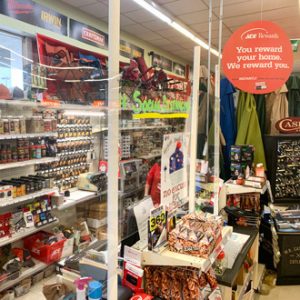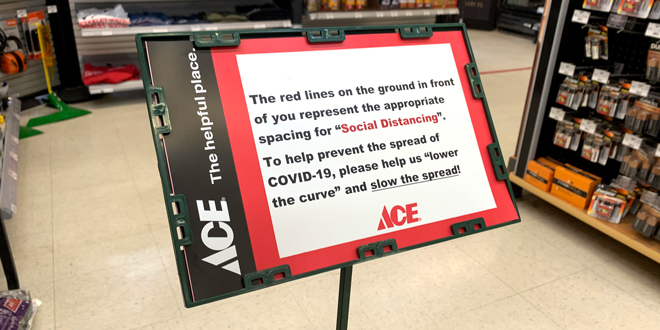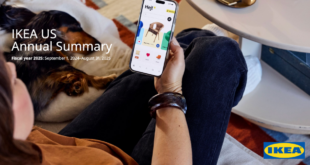
Like many other retail operations, Weakley-Watson Hardware in Brownwood, Texas, is doing business differently in response to COVID-19.
Owner Weston Jacobs is taking active steps not only to protect people from the virus, but also to take care of the larger community.
For example, he has prioritized providing products to the local hospital, specifically working to find the supplies it needs.
“We’re really trying to get outside of our normal box to get things in a more efficient manner,” Jacobs says.
Taking care of the community has also involved preventing product hoarding by limiting customers to buying two cans of disinfectant spray per day and asking them not to buy more than 5 pounds of ground beef from a local rancher who sells through the store.
The staff has posted signs asking customers to stick with the requested buying limits, but they aren’t aggressively checking to make sure people don’t come back later the same day to buy more.
“We want people to take this seriously, but we don’t want to contribute to hysteria,” Jacobs says. “This is very surreal and a lot of people don’t know how to feel.”
And, just to support other businesses, Weakley-Watson is offering customers 10 percent discounts at the store if they bring in a receipt showing they made a purchase at a local restaurant within the prior 48 hours.
Jacobs’ earliest reactions to the COVID-19 threat were to implement safety measures—protection that also serves the community.
The business started closing on Sundays in March to allow employees more time to rest. Jacobs installed plastic barriers, also called sneeze guards, between cashier stations and customers.
He also implemented a no-handshake rule for staff and asked employees to set alarms on their phones to remind them to clean the store and wash their hands every hour. However, they clean more often than that and use hand sanitizer if they come in contact with any surface a customer has touched.
“If there’s any gap between customers, we’re spraying down surfaces,” he says.
The staff has also stuck red tape strips 6 feet apart on the floor in front of the checkout line to help customers follow social distancing recommendations.
“We have become more of a self-service type store, pointing people where to go and running a lighter staff,” Jacobs says.
 Hardware Retailing The Industry's Source for Insights and Information
Hardware Retailing The Industry's Source for Insights and Information








